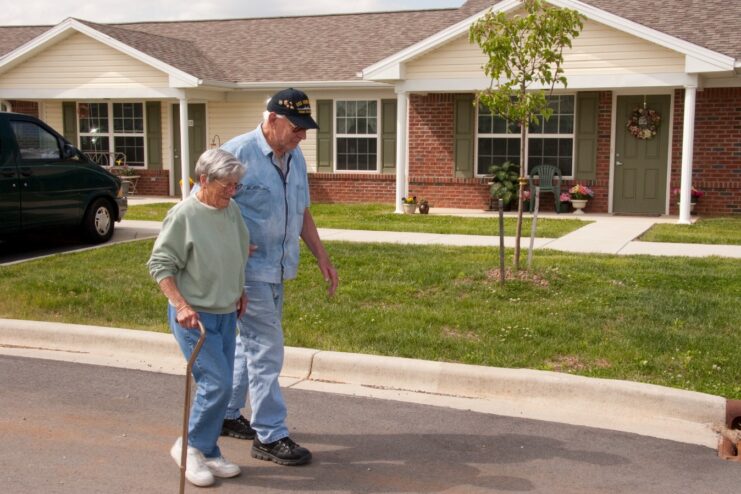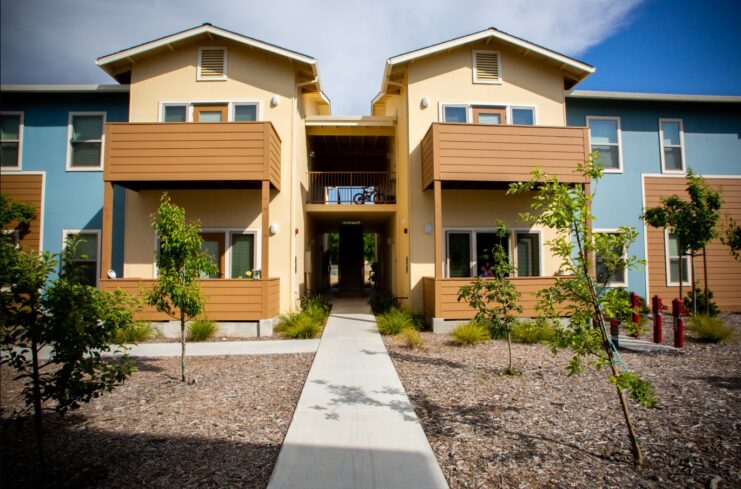Senior housing assistance is a crucial support mechanism for elderly individuals living on limited incomes. This blog post delves into the intricacies of senior housing assistance, aiming to shed light on who qualifies for such programs and why they are indispensable. By understanding the various aspects of these programs, we can ensure that our seniors live their later years with dignity, comfort, and security. This assistance is not just a matter of housing but a crucial factor in ensuring the overall wellbeing of our elderly population.
Importance of Senior Housing Assistance

Senior housing assistance is more than just a helping hand; it’s a lifeline for many elderly individuals. As living costs rise and health care expenses increase, many seniors find themselves struggling to make ends meet. These programs provide crucial support, ensuring that elderly individuals don’t have to choose between basic necessities and a safe, comfortable place to live. This assistance plays a pivotal role in maintaining the dignity, health, and wellbeing of our senior citizens, making it an essential aspect of societal support systems.
Types of Senior Housing
The world of senior housing is diverse, offering various options such as seniorsplaces.com to meet the different needs and preferences of the elderly. These include subsidized housing, which provides reduced rents based on income; independent living facilities, catering to seniors who can care for themselves but seek a community environment; and assisted living facilities, offering additional care and services for those who need extra help with daily activities. Each option is designed to offer a safe, supportive environment while respecting the independence and individuality of each senior resident.
Eligibility Criteria
Determining eligibility for senior housing assistance requires understanding a set of criteria that typically include age, income, and sometimes health status. These criteria are key in ensuring that the assistance reaches those in dire need, primarily focusing on seniors with limited financial resources. It’s not just about meeting the basic requirements; it’s about understanding the nuances of each program’s eligibility criteria. This comprehension is crucial for applicants, as it guides them in identifying the most suitable programs, thus maximizing their chances of receiving the necessary support to enjoy a comfortable and secure lifestyle in their later years.
Age Requirements

Age is a pivotal factor in determining eligibility for senior housing assistance. Most programs are accessible to individuals who are 62 years of age or older, though certain programs might set different age thresholds. This requirement is critical to ensure that these programs specifically cater to the senior population, addressing their unique housing needs and life circumstances. The age criterion not only helps in targeting the right demographic but also in tailoring the services and support offered to align with the specific challenges and requirements that come with advancing age.
Income Limits
Income limits play a crucial role in qualifying for senior housing assistance. These limits are typically benchmarked against the area’s median income, ensuring that the assistance is extended to those seniors in greatest need. Applicants must demonstrate that their income falls below a certain threshold, which varies with each program and the local cost of living. These limits are not just arbitrary figures; they are carefully calculated to reflect the economic realities of the seniors’ living environment, aiming to strike a balance between need and resource allocation.
Asset Limits
Beyond income limits, senior housing assistance programs often take into account an applicant’s assets. This criterion is designed to ensure equitable access to these programs, preventing those with substantial assets from benefiting unduly from assistance meant for low-income individuals. Understanding these asset limits is essential for seniors, as it can significantly influence their eligibility. It’s a way to safeguard the integrity of the assistance programs and ensure that the available resources are distributed to those who genuinely need them the most.
Citizenship and Residency Requirements

Citizenship and residency are critical elements in determining eligibility for senior housing assistance. Applicants typically need to be U.S. citizens or legal residents. Additionally, they may need to meet specific residency requirements within a state or locality. This is to ensure that the programs serve the local senior community and comply with legal and regulatory guidelines. These requirements are not just formalities but are integral in prioritizing local populations and managing resources effectively within communities.
Application Process
The application process for senior housing assistance is multifaceted, involving the collection of necessary documentation, completion of application forms, and often interviews or assessments. Applicants should be prepared to provide detailed information about their income, assets, and residency status. It’s important for seniors to understand this process in depth, as it can be quite intricate and demanding. A thorough understanding not only simplifies the application process but also enhances the chances of successfully obtaining the needed assistance.
Waiting Lists
Waiting lists are a common feature of many senior housing assistance programs due to the high demand. These lists can be extensive, and waiting times vary based on the program and location. Understanding how these waiting lists function and the factors that might influence an applicant’s position on the list is crucial. Seniors should be aware of these dynamics as they plan for their housing needs, as waiting times can significantly impact their housing plans and future living arrangements.
Additional Support Services

Many senior housing facilities, especially assisted living communities, offer a range of additional support services. These services often include meal programs, health care, transportation, and social activities, all designed to enhance the residents’ quality of life. These support services are not mere amenities; they are integral components of the living experience, providing care and assistance that enable seniors to maintain their independence and comfort. These services play a vital role in ensuring a holistic approach to senior living, addressing both the physical and emotional well-being of the residents.
Conclusion
Senior housing assistance is a vital part of our social support system, providing elderly individuals with the resources they need to live securely and comfortably in their later years. Understanding who qualifies for these programs and how they work is essential for seniors and their families. As our population ages, the importance of these programs only grows, highlighting the need for continued awareness and support for senior housing assistance.












